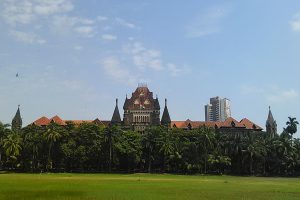Bombay High Court: Sandeep K. Shinde, J. dismissed an appeal filed by the State against the order of acquittal by the trial court in respect to the matter pertaining to Sections 498-A and 306 of Penal Code, 1860.
State preferred the present appeal under Section 378(1) of CrPC, 1973 against the order of acquittal passed by Additional Sessions Judge.
In accordance with the prosecution case, the deceased suffered suicidal death due to acute cardiorespiratory arrest caused due to 100% burns at her matrimonial house. Deceased’s brother filed the complaint against deceased’s brother-in-law (accused 1) and wife of accused 1 (accused 2) along with sister-in-law of deceased (accused 3), for ill-treating the deceased and for abetting to commit suicide.
Thus, a crime under Section 498-A and 306 read with Section 24 of the Penal Code, 1860 was registered,
Deceased suffered unnatural death within a period of 7 years from the date of her marriage. Trial Court acquitted the accused, having found the prosecution could not establish that the accused ill-treated and caused cruelty to deceased within the meaning of Explanation Clause-a to Section 498-A of the Penal Code, 1860.
Settled Law:
“Cruelty for the purpose of Section 498-A Penal Code, 1860 means any “willful conduct” which is of such a nature as is likely to drive a women to commit suicide or to cause grave injury or danger to life, limb or health (whether mental or physical) of the woman or harassment of the woman where such harassment is with a view to coercing her or any person related to her to meet any unlawful demand for any property or valuable security is on account of failure by her or any person related to her to meet such demand.”
The question involved in the present case is,
“Whether prosecution has established that the “willful conduct” of the accused was of such a nature which drove Shaheeda (deceased) to commit suicide?”
On the date of the incident, a quarrel ensued between the deceased and accused 2, during the course of the same, deceased inflicted injury on the forehead of accused 2 by a stick. It is disclosed that when accused 1 had gone to the police station to report about the assault by deceased on his wife (accused 2), he was informed that the deceased had set herself on fire.
It was reported to the police that there were recurring disputes between the deceased and her in-laws on account of supply and electricity and water.
Thus upon assessing the evidence of deceased’s brother, it cannot be said that “willful conduct” of the accused amounts to cruelty and such alleged conduct drove her to commit suicide. There is no specification laid out as to what kind of ill-treatment or harassment was meted out to the deceased.
High Court on noting the facts and circumstances of the case, held that there is no evidence or rather, it is not the case of the prosecution that the deceased was physically harassed or tortured by the accused. Equally, there is no dependable evidence to hold that, accused were mentally torturing the deceased.
Therefore, by relying on the Supreme Court’s decision in Pawan Kalyan v. State of Haryana, (1998) 3 SCC 309, Ramesh Kumar v. State of Chhattisgarh, (2001) 9 SCC 618 and Mohd. Hoshan v. State of A.P., (2002) 7 SCC 414, Court held that the trial court is consistent with the evidence which cannot be faulted with and hence no interference is called for. The appeal, therefore, fails and is dismissed. [State of Maharashtra v. Ibrahim Ruknuddin Bagkari, Criminal Appeal No. 1267 of 2003, decided on 11-09-2019]

